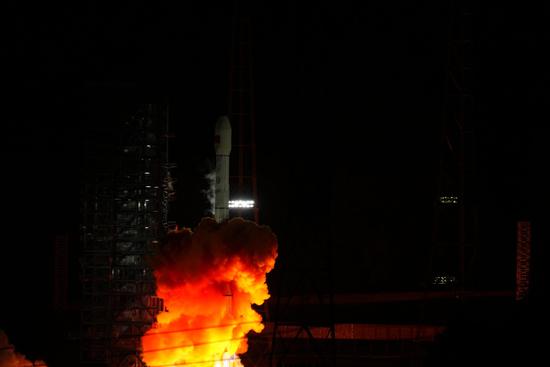
The comet C/2023 A3 (Tsuchinshan-ATLAS), with a yellow tail. (Photo provided to chinadaily.com.cn)
The most anticipated comet of 2024, C/2023 A3 (Tsuchinshan-ATLAS) can be observed by the naked eye in the western sky after sunset in the Northern Hemisphere, according to researchers.
"Actually, the comet reached its peak brightness on Oct 4, but it was too close to the sun for humans to see with the naked eye," explained by Wang Kechao from Purple Mountain Observatory, Chinese Academy of Science.
The comet C/2023 A3 (Tsuchinshan-ATLAS), with a yellow tail, is firstly discovered by the Purple Mountain Observatory, Chinese Academy of Sciences in 2023. Its intense brightness has brought it to the attention of the experts and the public globally.
On Saturday, the comet will make its closest approach to Earth. In the Northern Hemisphere, the comet will appear low in the west shortly after sunset and will be visible for about 10 to 20 minutes.
In the following days after this, the comet is expected to be seen longer and more easily, and it is predicted that the comet will be start to lose visibility in November, according to Wang.
This celestial spectacle also provides an opportunity of continuous observation for researchers, to explore more material composition and activity evolution of comets.
According to astronomers' calculations, this is a comet in a near-parabolic elliptical and retrograde orbit, which means it orbits the Sun in the opposite direction of the sun's rotation (from west to east) and takes more than 61,000 years to travel around the Sun.


















































 京公网安备 11010202009201号
京公网安备 11010202009201号